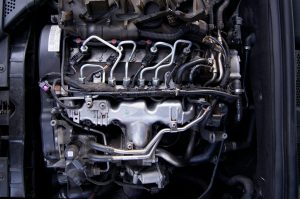Strategies for Effective Vehicle Maintenance Scheduling
As a vehicle owner, one of the most crucial tasks you have is ensuring proper maintenance and scheduling for your car. Vehicle maintenance is not only important for the longevity and performance of your vehicle, but it can also save you from costly repairs and breakdowns in the future. However, with busy schedules and day-to-day responsibilities, it can be challenging to manage and keep track of regular maintenance for your vehicle. In this article, we will discuss effective strategies for vehicle maintenance scheduling to help you stay on top of your car’s upkeep, ensuring it continues to run smoothly and efficiently for years to come.
The Importance of Vehicle Maintenance Scheduling
Before diving into the strategies, let’s first understand why vehicle maintenance scheduling is crucial. Regular maintenance helps keep your car in top condition by identifying and fixing any minor issues before they turn into major problems. It also ensures that your vehicle is safe to drive and reduces the risk of any breakdowns or accidents while on the road. Additionally, staying on top of your vehicle’s maintenance can also increase its resale value in the future.
1. Follow Your Manufacturer’s Recommended Schedule
Every vehicle comes with a recommended maintenance schedule provided by the manufacturer. This schedule is based on factors such as mileage, type of vehicle, and driving conditions. It is essential to follow this schedule as closely as possible to ensure your vehicle receives the necessary upkeep it needs to perform at its best. You can find this schedule in your car’s owner manual or by contacting your dealership.
1.1 Stick to Regular Oil Changes
Oil changes are crucial for your vehicle’s engine health and should be done regularly as per your manufacturer’s recommendation. It is recommended to get an oil change every 5,000 – 7,500 miles, depending on your vehicle’s make and model. This simple maintenance task can help prevent engine damage and keep your car running smoothly.
1.2 Rotate Your Tires
Regularly rotating your tires is another important maintenance task that is often overlooked. Rotating your tires every 5,000 – 7,000 miles helps distribute the wear more evenly, resulting in prolonged tire life and better gas mileage.
2. Keep Track of Your Mileage
Keeping track of your mileage is essential for maintaining your vehicle. With the advancement of technology, many vehicles now come with a built-in maintenance reminder system that alerts you when it’s time for routine maintenance tasks. However, if your car doesn’t have this feature, make sure to manually track your mileage and stick to your manufacturer’s recommended schedule. You can also use a maintenance log or smartphone app to keep track of your car’s maintenance needs.
3. Consider the Driving Conditions
Driving conditions can have a significant impact on your vehicle’s maintenance needs. For example, if you live in an area with extreme weather conditions, such as hot summers or harsh winters, your vehicle may require more frequent maintenance. Similarly, if you frequently drive in stop-and-go city traffic, your vehicle may need more frequent oil changes. It’s essential to consider these factors and adjust your maintenance schedule accordingly.
4. Keep an Eye on Warning Signs
Lastly, it’s crucial to pay attention to any warning signs or unusual behaviors from your vehicle. These could include dashboard warning lights, strange noises, or a change in performance. Ignoring these signs could lead to more significant problems in the future. If you notice any warning signs, it’s best to take your car to a certified mechanic for a professional diagnosis.
Final Thoughts
Maintaining your vehicle doesn’t have to be a daunting task if you follow an effective maintenance scheduling strategy. By following your manufacturer’s recommended schedule, tracking your mileage, considering your driving conditions, and paying attention to warning signs, you can ensure your car stays in top condition and saves you from future expenses and headaches. Remember, proper maintenance not only keeps your vehicle running smoothly but also adds value to your investment in the long run.










